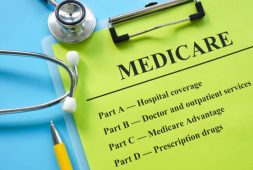
Regular monitoring for cognitive decline is crucial for individuals who have experienced a stroke, as indicated by a recent study revealing a nearly threefold increase in dementia risk within the first year post-stroke. When a stroke occurs, the interruption of blood flow to the brain leads to cell death or damage, potentially culminating in dementia. According to a scientific statement jointly issued by the American Heart Association and American Stroke Association, over half of stroke survivors encounter memory and cognitive issues within the initial year, with up to one-third receiving a dementia diagnosis within five years.
Presenting at the forthcoming International Stroke Conference in Phoenix, preliminary research further corroborates the link between stroke and heightened dementia susceptibility. Analyzing approximately 180,000 stroke patients, the study found an 80% elevated risk of dementia compared to a matched segment of the general population. Remarkably, this risk persisted even after adjusting for variables such as hypertension, diabetes, and hypercholesterolemia. These findings underscore the imperative for vigilant monitoring and proactive management of cognitive health in stroke survivors to mitigate the considerable risk of dementia.
“Our results confirm the uniquely high risk of dementia after stroke,” Raed Joundi, MD, lead study author, said. He is an assistant professor at McMaster University in Hamilton, Ontario, Canada, and an investigator at the Population Health Research Institute, a joint institute of McMaster University and Hamilton Health Sciences. “The study raises the importance of dementia as a common complication after stroke and that we need to find ways to lower the risk of dementia in this population.”
Dementia Risk at Its Greatest Early And Still Persists Years After
Dr. Joundi and his team made a significant finding: the likelihood of developing dementia peaked within the initial year following a stroke, showing an almost threefold rise in risk.
“Dementia early after stroke may be due to direct brain injury from the stroke in ‘strategic’ locations that impact cognitive function,” Joundi said.
The study observed that the likelihood of developing dementia after a stroke decreases over time, with the risk increasing to only 1.5 times higher at the five-year mark post-stroke.
“While the risk decreases over time, it remains elevated over the long term,” Joundi said. The findings suggest that survivors are required to have themselves monitored for cognitive decline soon after suffering from a stroke, and continue to be checked for cognitive decline in the years after.
How Heart Attack and Type of Stroke Affect the Aftermath
Utilizing health data encompassing a vast cohort exceeding 15 million individuals from Ontario, Canada, Joundi and his team scrutinized 180,940 subjects who had experienced either an ischemic stroke (caused by a clot) or an intracerebral hemorrhage (bleeding within the brain), as outlined by the American Stroke Association. The average age of participants stood at 69 years, with men constituting 55 percent of the group.
Their investigation entailed a comparison of outcomes among three distinct groups: stroke survivors, individuals from the general populace devoid of a history of heart attack or stroke, and those who had experienced a heart attack without a stroke.
Across an average tracking period of five and a half years, dementia manifested in nearly 1 out of 5 stroke survivors. Interestingly, individuals solely afflicted by stroke exhibited a dementia risk comparable to that of the general population.
These findings resonate with the research of Victor W. Henderson, MD, who serves as the Director of the Alzheimer’s Disease Research Center at Stanford University in California. His own studies have suggested that the incidence of Alzheimer’s disease and other forms of dementia does not rise significantly among patients who have suffered a heart attack.
“People who have a heart attack have vascular risk factors, but they are not necessarily going to affect the brain in a way that is going to lead to dementia,” Dr. Henderson said. He was not part of the study discussed.
The most recent study underscores the alarming connection between intracerebral hemorrhage (bleeding in the brain) and the heightened risk of dementia. Individuals who suffer from this type of stroke face a staggering 150 percent increase in the likelihood of developing dementia compared to the average population.
Prior investigations have illuminated the relationship between the accumulation of amyloid plaques in blood vessels—a hallmark of Alzheimer’s disease—and the elevated risk of intracerebral hemorrhage. This suggests a complex interplay between vascular health and neurodegenerative processes, shedding light on potential avenues for preventive interventions and therapeutic strategies.
“Intracerebral hemorrhages aren’t as common ischemic strokes, but they’re often much more serious and damaging,” Henderson said.
Furthermore, the latest analysis emphasized that experiencing repeated strokes significantly increases the risk of dementia. Interestingly, dementia diagnosis was found to be more prevalent than experiencing another stroke.
“This was surprising and means we need to pay attention to dementia as a complication of stroke in the short and long-term,” Joundi stated.
What to Do to Lower Risk for Stroke
According to the most recent data from the American Heart Association’s Heart Disease and Stroke Statistics 2024 Update, an alarming 795,000 individuals suffer either a new or recurring stroke annually. Of these cases, approximately 610,000 constitute first-time strokes, while the remaining 185,000 represent recurrent incidents.
The aftermath of a stroke can be profoundly debilitating, leading to various disabilities that significantly hinder daily life. These repercussions may manifest as impaired speech, restricted physical capabilities, and even limb weakness or paralysis. Moreover, the association between stroke and dementia underscores the critical importance of undertaking preventive measures to minimize the likelihood of experiencing a stroke.
“Taking heed of your cardiovascular health is something you can act on,” advised Henderson.
The Centers for Disease Control and Prevention (CDC) recommends lifestyle modifications to lower the risk of stroke. These include boosting physical activity, adopting a nutritious diet, quitting smoking, maintaining a healthy weight, and moderating alcohol intake.
The CDC also advises collaborating with a physician to manage diabetes, blood pressure, and cholesterol levels.
“Almost one-fifth of people develop dementia after stroke, primarily in the first few years,” Joundi explained. “This is a significant issue given the number of people having stroke is increasing with time due to the aging populations worldwide. There is a major need to develop novel strategies to prevent dementia after stroke.”



